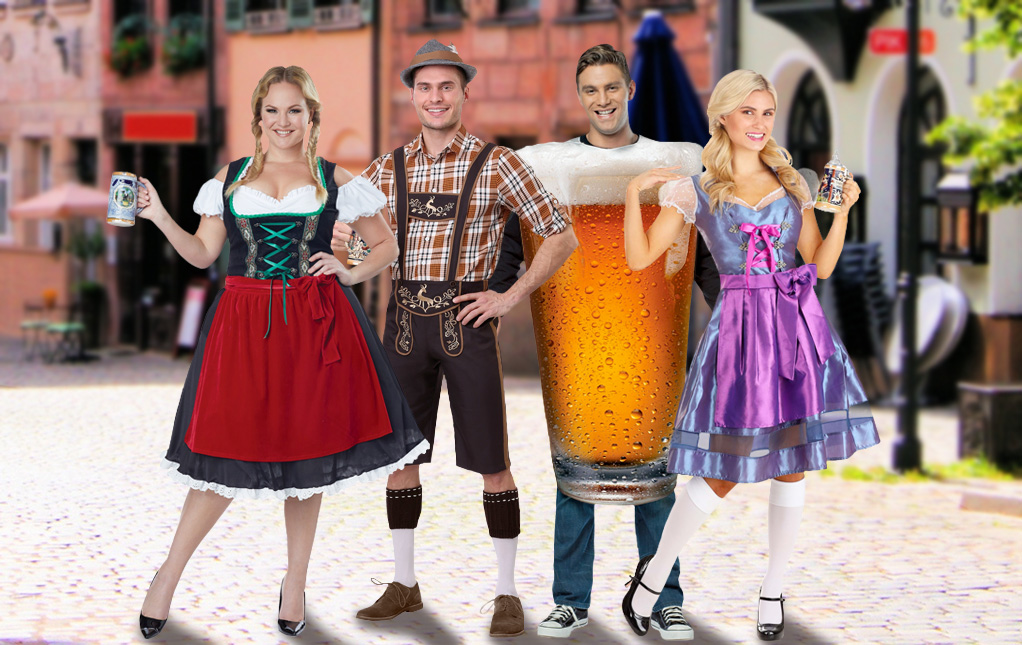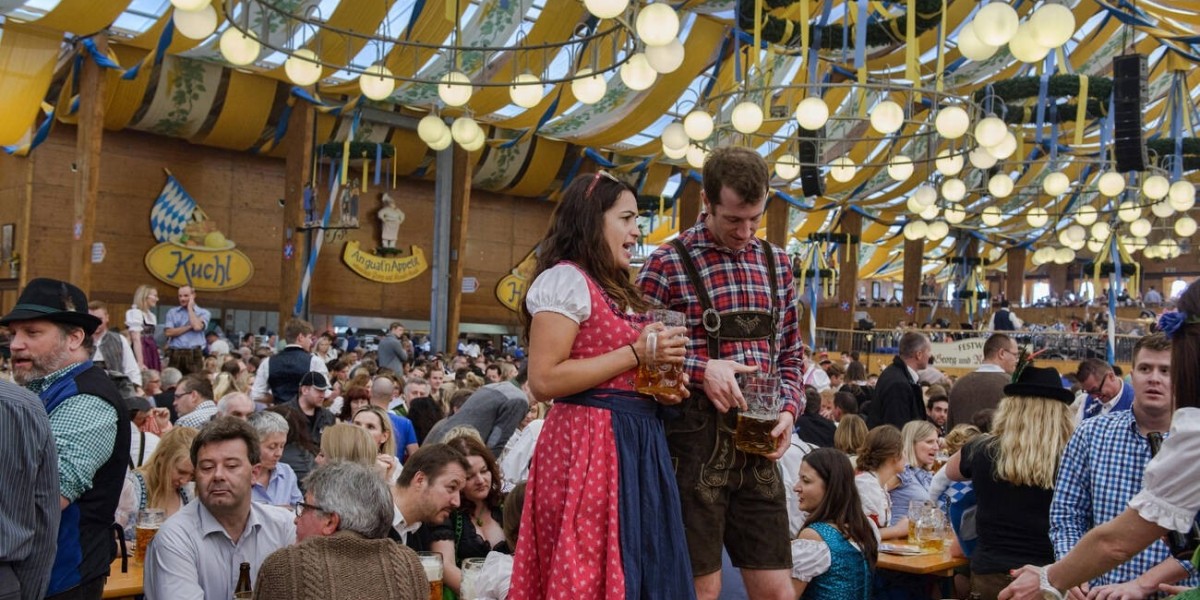Oktoberfest, the world-renowned Bavarian festival, is not only a celebration of beer and food but also a showcase of traditional Bavarian culture. One of the most iconic aspects of Oktoberfest is the traditional clothing worn by locals and visitors alike. The question of whether it is acceptable for tourists to wear traditional Oktoberfest clothing, known as Tracht, has sparked discussions and debates among festival-goers and cultural enthusiasts.

Understanding the Significance of Tracht
Tracht holds a special place in Bavarian culture, representing centuries-old traditions and customs. The attire includes dirndls for women and lederhosen for men, each with its unique style and symbolism. These garments are not merely costumes but symbols of regional identity, heritage, and pride. The intricate designs, colors, and accessories of Tracht often reflect the wearer's social status, region of origin, and even relationship status.
Cultural Appropriation vs. Cultural Appreciation
The debate over tourists wearing traditional Oktoberfest clothing revolves around the concepts of cultural appropriation and cultural appreciation. Cultural appropriation occurs when elements of a minority culture are adopted by members of a dominant culture without understanding or respecting their significance. In the context of Oktoberfest, some argue that tourists wearing Tracht without a genuine appreciation for its cultural meaning may be engaging in cultural appropriation.On the other hand, cultural appreciation involves respectfully engaging with and honoring a culture's traditions and practices. When tourists wear traditional Oktoberfest clothing with an understanding of its significance, they can contribute to the celebration of Bavarian culture and foster cross-cultural exchange. By embracing Tracht, tourists can show respect for local customs and demonstrate a willingness to participate in the cultural heritage of the festival.
Perspectives from Locals and Tourists
The views on tourists wearing traditional Oktoberfest clothing vary among locals and tourists themselves. Many Bavarians appreciate when visitors don Tracht, as it demonstrates an interest in and respect for their cultural heritage. Seeing tourists in traditional attire can create a sense of camaraderie and shared celebration among festival attendees. For some locals, tourists wearing Tracht can be a way to bridge cultural gaps and promote cultural exchange.However, there are also Bavarians who view tourists wearing traditional clothing with skepticism. Concerns about authenticity, respect, and understanding of the cultural significance of Tracht may lead some locals to prefer that tourists opt for more casual attire. Additionally, the commercialization of Oktoberfest attire, with mass-produced and inauthentic versions of Tracht available for purchase, can raise questions about the commodification of Bavarian culture.Tourists themselves may have mixed feelings about wearing traditional Oktoberfest clothing. Some may embrace the opportunity to immerse themselves in the festival's traditions and feel a sense of connection to Bavarian culture. Others may find Tracht uncomfortable, expensive, or impractical for the long days of festivities at Oktoberfest. Balancing the desire to participate in cultural traditions with personal comfort and practicality can be a challenge for tourists considering wearing traditional attire.
Recommendations for Tourists
For tourists contemplating wearing traditional Oktoberfest clothing, there are several considerations to keep in mind:
- Respect the Culture: Before donning Tracht, take the time to learn about the significance of the attire and its cultural importance to Bavarians. Understanding the history and symbolism of traditional clothing can enhance your experience at Oktoberfest.
- Choose Authenticity: Opt for authentic or high-quality Tracht if possible, rather than mass-produced or cheap imitations. Authentic garments not only support local artisans and traditions but also demonstrate a genuine interest in Bavarian culture.
- Be Mindful of Comfort: Consider your comfort and practical needs when selecting Oktoberfest attire. If traditional clothing is not suitable for long hours of celebration, explore alternatives such as modern interpretations of Tracht or casual Bavarian-inspired outfits.
- Engage Responsibly: Wear traditional Oktoberfest clothing with respect and humility, recognizing that you are participating in a cultural tradition that holds significance for many Bavarians. Be open to feedback and cultural exchange with locals.
Conclusion
In conclusion, the question of whether it is acceptable for tourists to wear traditional Oktoberfest clothing is a complex and nuanced issue. While wearing Tracht can be a way to show respect for Bavarian culture and participate in the traditions of Oktoberfest, it is essential for tourists to approach the attire with understanding, authenticity, and respect. By engaging responsibly with traditional clothing, tourists can contribute to the celebration of Bavarian culture and foster meaningful cultural exchange at Oktoberfest.
As you consider your attire for the next Oktoberfest celebration, remember that wearing traditional clothing is not just about fashion but also about embracing a rich cultural heritage and connecting with the spirit of the festival. Whether you choose to don a dirndl, lederhosen, or a modern interpretation of Tracht, let your attire reflect your appreciation for Bavarian culture and your enthusiasm for the festivities of Oktoberfest. This comprehensive content piece provides a detailed exploration of the topic "Is it Acceptable for Tourists to Wear Traditional Oktoberfest Clothing," covering various perspectives, considerations, and recommendations for tourists considering traditional attire at Oktoberfest.







